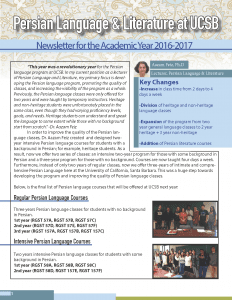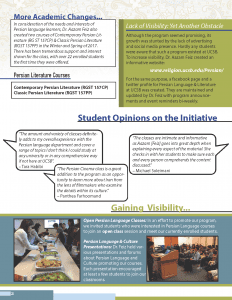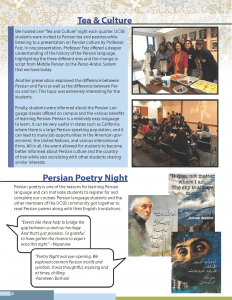Humanities and Social Sciences
University of California, Santa Barbara, Isla Vista, CA 93117
USA
The law presumes not only the right but the duty to punish: it does not ask whether it should punish, but how much, who, when, and how. In contrast, Christianity offers a different response to wrongdoing: Jesus engaged in a polemical attack on “the reciprocity code,” the assumption that good should be reciprocated with good and evil with evil. “Love your enemies, do good to those who hate you, bless those who curse you, pray for those who abuse you” (Luke 6:27-28). How are we to begin to understand this radical difference?
Regina Schwartz, the J.E. and Lillian Byrne Tipton Distinguished Visiting Professor in Religious Studies at UC Santa Barbara for Winter Quarter 2015, is Professor of English at Northwestern University. She is the author of Remembering and Repeating: On Milton’s Theology and Poetics, which won the James Holly Hanford Book Award, The Curse of Cain: The Violent Legacy of Monotheism, which was nominated for a Pulitzer Prize and, most recently, Sacramental Poetics at the Dawn of Secularism: When God Left the World, which explores the sacramental vision of justice that infuses the poetry, drama, and the wider culture of the English Reformation. The book she just finished explores questions of justice from the Bible to Shakespeare and is entitled, “Justice: What’s Love (and Shakespeare) Got to Do With It?”
Download Regina Schwartz lecture flyer (pdf)
About Schwartz:
Regina Schwartz (Ph.D. University of Virginia) teaches seventeeth-century literature, especially Milton; Hebrew Bible; philosophy and literature, law and literature, and religion and literature. Her publications include Remembering and Repeating: Biblical Creation in Paradise Lost (1988), which won the James Holly Hanford prize for the best book on Milton; The Book and the Text: The Bible and Literary Theory (1990); Desire in the Renaissance: Psychoanalysis and Literature(1994); The Postmodern Bible (1995) and Transcendence: Philosophy, Literature, and Theology Approach the Beyond (2004). The Curse of Cain: The Violent Legacy of Monotheism (1997), a study of identity and violence in the Hebrew Bible, was nominated for a Pulitzer Prize. Her most recent book, Sacramentality at the Dawn of Secularism: When God Left the World, is published by Stanford in their series “Cultural Memory in the Present” (2007).
She has served as President of the Milton Society of America, Chair of the Modern Language Association Religion and Literature Division and Chair of Northwestern’s Interdisciplinary Hiring Initiative in the Humanities. Her recent speaking engagements include featured speaker at the Adelaide Festival of Ideas, the Carnegie Council on Ethics and International Affairs, and international conferences on “Ontology,” “The Place of Theology in the Liberal State and Global Setting,” and “Derrida and Religion.” Her recent essays on postmodern theology appear in Post-secular Philosophy, Questioning God, and Transcendence; on Milton and Renaissance literature in The Blackwell Companion to Milton and The Journal of Religion and Literature; and on Shakespeare and Law in Triquarterly.
Regina Schwartz is also the Director of the Milton Project: honoring the 400th birthday of John Milton. She has written the play adaptation, “John Milton’s Paradise Lost” which was performed by the Chicago Shakespeare Project in May, 2010, and she has written the libretto to the opera, Paradise Lost, composed by John Eaton. See www.thejohnmiltonproject.com
Regina Schwartz spoke in 2011 about Religion, Violence and Freedom of Speech at the conference in Lugano, Switzerland, Religion and the Public Sphere. This televised interview with her focused on responses to religion in the United States in the aftermath of 9/11.















